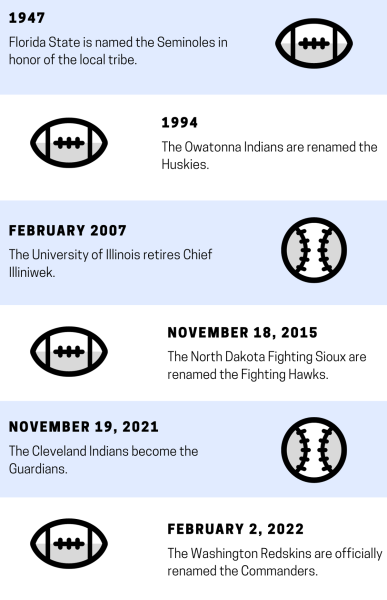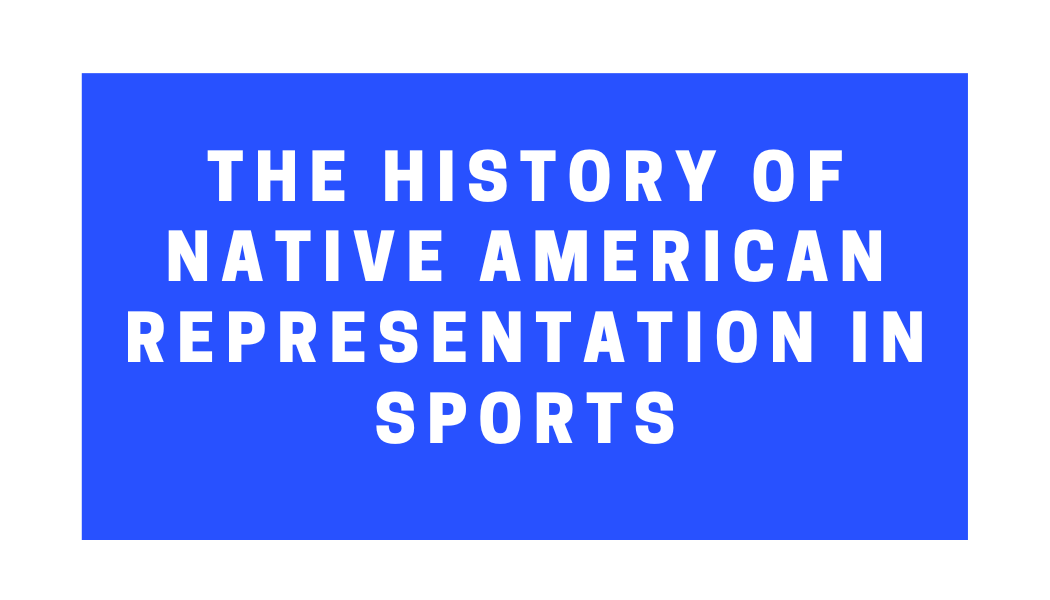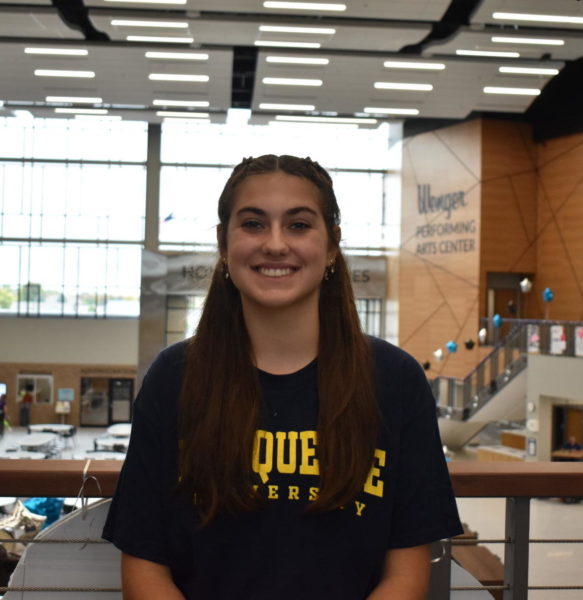The concept of having a Native American themed sports teams and mascots has always been a controversial topic, but the debate has become popularized in recent years. Multiple teams have received backlash based on their team’s name and mascot, yet only a few of those teams made the decision to switch names in order to be more respectful.
Owatonna is a community whose sports teams formerly identified as the Indians, so this discussion is much more personal and relevant to local citizens. The Indians were renamed and the mascot was changed to become the newfound Owatonna Huskies in the fall season of 1994. The dean of students at OHS, Mr. Doug Wanous, was a member of the committee that made the name and mascot change.
Mr. Wanous said, “It was definitely the right thing to do because we are Owatonna, we are not the Indians. Changing to the Huskies was the move that Mr. Herzog, as principal, led as a result of being more sensitive.”
This decision was made before any laws or regulations relating to this topic were put into action.
PROFESSIONAL SPORTS TEAMS REPRESENTING NATIVES

Throughout U.S. history, a variety of amateur and professional sports have made the conscious decision to adopt Native-themed team names and mascots. Some past and present examples that might come to mind include the Atlanta Braves, Chicago Blackhawks, Kansas City Chiefs, Cleveland Indians (now the Guardians), Golden State Warriors and the Washington Redskins (now the Commanders).
A large reason that sports teams are now feeling urged to change their official name and mascot is due to the miseducation of the terms they publicly support. For example, the Cleveland Guardians, formerly known as the Indians. Although Americans often referred to Native Americans as Indians, that term is, in all ways, incorrect. As said in the name, Indians are people who are from India or are of Indian descent. American Indian or Native American refers to those who are native to the American continent.The former Indians baseball team was named after people from one nation, India, but their logo featured a red-skinned Native American and fans often attended games wearing tribal face paint and headdresses. Perhaps misunderstandings are the real reason why this topic has become such an issue to Native Americans– they feel misrepresented.
Despite the complications surrounding these team names, only two of the ones listed eventually changed their names and mascots to something unrelated to Native Americans. These changes were very recently made. Cleveland officially became the Guardians in 2021, and Washington was renamed the Commanders in 2022.
Then a question might arise: So why are these names only becoming a rising issue in the past few years, and why are some teams changing, but not others?
American sports began many years ago, and as time goes on, certain topics within sports culture can gain different meanings. OHS Social Studies teacher Adam Woitalla said, “Things change over time and history is about learning how to interpret change and seeing the message. It is fluid and I think it is always good for society to be able to critically reflect on anything to determine if the way they are doing it is working, or does it need to be changed. You do that in business, you do that in life, and ultimately it is a good practice for schools and mascots to also take.”
However, the true impact of these names can only be decided by the Native population, since the names refer to their culture. Many websites claim that how professional sports teams choose to represent themselves through Tribal references affects the Native youth population in the United States. Paraphrased from “Native American mascot controversy”, the stereotypes displayed in Native-themed mascots have negatively impacted how Native Americans view themselves and their own culture. In response to this, the American Psychological Association called for the retirement of every one of these mascots in 2005.
It was the hope that this would resolve any cultural conflicts, yet many teams are still supporting their Native-themed names and mascots. Take the NHL team, the Chicago Blackhawks, for example. The Blackhawks were founded in 1926, quite a bit before 2005, and to this day, their mascot is a Native American wearing traditional face paint and feathers in their hair. The controversy of the mascot has been brought up numerous times by Native American hockey fans, but the responses are not what might be expected.
Although it is often believed that the Blackhawks are named after a tribe, in actuality, it is the name of a specific Native American figure. Chief Blackhawk was a member of the Sauk tribe in Illinois and was known for fighting the expansion of white settlers in midwestern states.
Many Natives are known hockey fans and tend to see the name as an honor, but there are some who disagree. The article “Native-Americans weigh in on ‘Blackhawks’ name” includes interviews with Native American hockey fanatics. A member of the American Indian Center, Joe Podlasek, said, “The stance is very clear. We want the logo to change.” Paraphrased from “Native American Cultures and Clothing”, using Indigenous symbols creates inaccurate and generalized perspectives on Native cultures.
However, another Native, Hara Jonathan, was also interviewed for the article “Native-Americans weigh in on ‘Blackhawks’ name”. She said, “As long as they treat it with respect, that’s fine by me.” These opposing opinions create even more complexity surrounding the topic.
If Native Americans believe these Native-themed mascots to be an honor, then why do many teams receive so much hate? The answer lies in Jonathan’s response– “As long as they treat it with respect.”
Honoring the name is a civil way to honor the history of the nation and its people, but the cultural appropriation of mascots and the attire worn by fans may not be seen as civil or respectful. A New York Times article, “Is It Offensive for Sports Teams and Their Fans to Use Native American Names, Imagery and Gestures”, paraphrases that fans dressing as Natives not only disregards the feelings of those they are dressing as, but also embarrasses those dressing up, so yes, it can be seen as disrespectful.
MINNESOTA ATTEMPTS TO PASS BILL PROHIBITING INDIGENOUS MASCOTS
Although the previous discussion from the APA is not recent, there is one current event that is specific to Minnesota. In early 2023, on May 16, the Minnesota house passed the $2.2 billion Bill 2497. In the house, it passed 70-62, and in the senate, it passed 35-32. Although the majority of the bill focuses on general education, Article four Section six prohibits all public schools from having an American Indian mascot, name, nickname, logo or letterhead. This bill has yet to be officially passed by Governor Tim Walz, but if it is passed, many high school teams throughout the state will be required to change their names. Paraphrased from the article “Minnesota could ban Native American mascots for schools”, those teams include the Benson Braves, Deer River Warriors, Esko Eskomos, Menahga Braves, Sleepy Eye Indians, Warroad Warriors and Wheaton Warriors.
The article “Minnesota could ban Native American mascots for schools” also discusses the controversy that has begun among the teams. The article paraphrases that a group of Warroad residents openly opposed the bill’s requirements in front of the Minnesota House Education Finance Committee. Not only is the current school logo designed by an Indigenous artist, but it has been okayed by the National Coalition Against Racism In Sports and Media, and is owned by the school’s American Indian Parent Advisory Committee. This means that every item sold with the Warroad logo on it donates money to benefit Indigenous adolescents. Whether or not exceptions to the bill’s requirements will be made is still undecided, but the hope is that certain schools, like Warroad, can seek exemption from this bill. If it gets passed, all sections of Bill 2497 will be in action by the end of 2025.
Many students may not have any strong opinion or interest on this conflict, but there are still those who can give personal thoughts. OHS senior Paytyn Struss said, “I don’t really know a ton about this, but I would say whether or not it is disrespectful or respectful really depends on how the tribes themselves would view it.”
This bill has brought light to the controversy surrounding Native American representation in modern sports culture, but this issue is yet to be fully resolved. Perhaps more respect toward culture is needed, but the original intent of many of these mascots was to honor Native Americans, not ridicule them. Whatever the right answer to these debates may be, the final decision can only come from the Native Americans.
Editorial Note: The use of the word “Natives” follows AP Style rules on the topic of Native Americans and Indigenous references.




